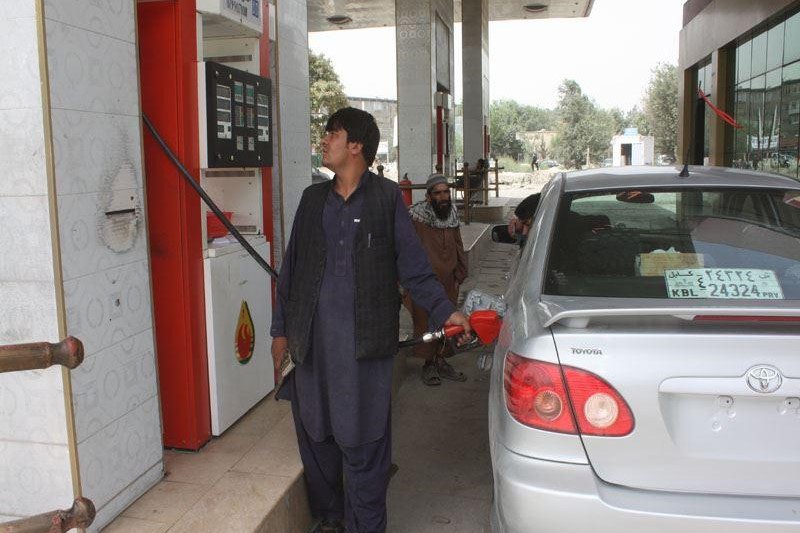This past week, the US secretary of state discussed Afghanistan with Central Asian leaders, the World Food Program opened a new center on the Uzbek-Afghan border, Kazakhstan reaffirmed its support for the Islamic Organization of Food Security’s operations toward Afghanistan, and a Russian-Afghan energy deal bore fruit for average Afghans.

Petrol Station in Kabul. Image source: RFE/RL
American secretary of state Antony J. Blinken visited Kazakhstan and Uzbekistan this week, the first appearance of any Biden-administration cabinet members in Central Asia. Since the official end of the United States’ war in Afghanistan in 2021, outreach to the Central Asian republics has considerably contracted, as supply routes and airbases in the region are no longer required. But with the Russian invasion of Ukraine, the situation has changed. The primary purpose of Blinken’s visit was to encourage the Central Asian republics to not materially support Russia’s war and to build alternative economic and political ties. But given the region’s physical and cultural proximity to Afghanistan and the United States’ tumultuous withdrawal from Kabul in August 2021, the matter of the Taliban government and the humanitarian crisis was also close at hand. Speaking with the Uzbek journalist Doniyor Tukhsinov, Blinken commented
"I think countries like Uzbekistan, other Muslim-majority countries, do have a special role to play because their voice may be more meaningful, more important to the Taliban than ours or other countries. And so we appreciate and applaud the efforts that countries like Uzbekistan have made to communicate with the Taliban and to make clear what’s expected if they’re going to have a more normal relationship with other countries" (US State Department).
Speaking next to Blinken, Uzbekistan's President, Shavkat Mirziyoyev, urged the US to continue supporting UN-run aid programs and infrastructure projects in Afghanistan. Jennifer Murtashvili, a scholar focusing on Central Asia, observed that Uzbekistan and Tajikistan have played a specific and vital role in pushing the United States to engage with the Taliban government and not act punitively or dismissively in ways that would negatively impact the people of Afghanistan (VOA).
The World Food Program (WFP), an organization within the United Nations, has opened a second warehouse in Termez, Uzbekistan, for the distribution of food aid to Afghanistan. Termez is situated on the border with Balkh province, home to one of Afghanistan’s largest cities, Mazar-i-Sharif. This represents a continuation of a trend that places Uzbekistan as the foremost conduit of humanitarian aid to the impoverished citizens of Afghanistan. According to the Afghan representative in the WFP, Wahidullah Amani, approximately 1000 tons of food aid enter Afghanistan from Termez every day, to be distributed throughout the country (Asia-Plus).
Similarly, representatives of Kazakhstan, including the deputy minister of foreign affairs Kanat Tumysh, met this past week with Yerlan Baidaulet, the director of the Islamic Organization for Food Security (IOFS). The organization was created under an initiative by former president of Kazakhstan Nursultan Nazarbayev and operates as an organ of the Organization of Islamic Cooperation, of which all of the Central Asian republics are members. Among the issues discussed was continued support by Kazakhstan for humanitarian aid and development projects in Afghanistan (Jaiyq Press).
Russia’s complicated relationship with the Taliban government of Afghanistan continues apace. Afghan media reported that due to a landmark energy agreement with Russia that was signed in November 2022, the price of fuel for Afghan consumers has decreased by as much as 10% (TOLO News). Though much of the agreement was kept secret, it allegedly stipulated that Russia would provide 1 million tons of each of gasoline and diesel per year. What the Taliban administration gave in return is unclear. At the time, this energy contract was the biggest commercial deal signed by Afghanistan since the collapse of the previous government in 2021 (Media Zona).

